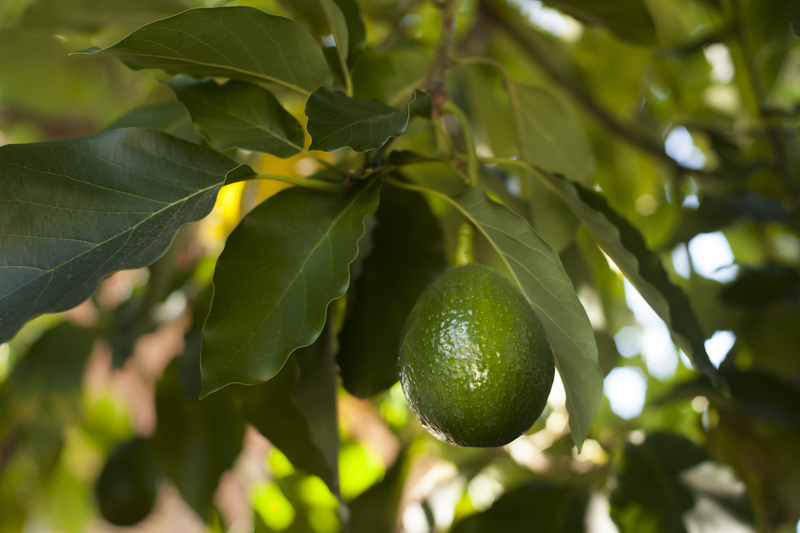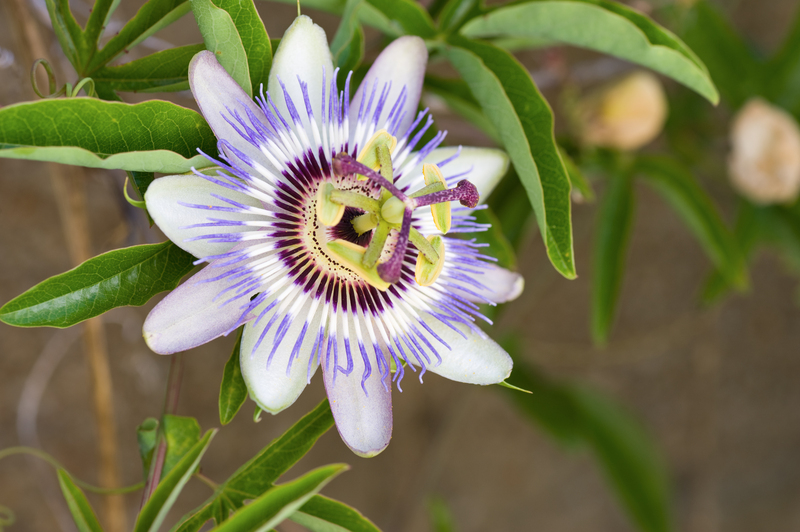Weed Management Made Simple: 3 Key Tips
Posted on 08/06/2025
Weed Management Made Simple: 3 Key Tips
Weeds can be the bane of every gardener, landscaper, and farmer's existence. These unsolicited plants compete with your desired crops and ornamentals for water, nutrients, sunlight, and space--often resulting in reduced productivity and curb appeal. Effective weed management is not an insurmountable challenge; in fact, with a strategic approach, weed control becomes much more manageable. If you've ever wondered how to keep weeds at bay without resorting to endless hours of hand-pulling or excessive chemical use, this in-depth guide offers the most practical and sustainable weed management tips for every setting.
Why Is Weed Management Important?
Weeds aren't just unsightly--they can harm your garden, crops, and outdoor spaces in multiple ways:
- They compete for nutrients, water, and sunlight, reducing yields in vegetable patches and agricultural fields.
- Weeds may harbor pests and diseases that threaten the health of your desirable plants.
- In landscaping, aggressive weeds can ruin the aesthetic by invading lawns, driveways, and flower beds.
- Some weeds have hazardous effects such as causing allergies or being toxic to pets and livestock.
Fortunately, weed management strategies have evolved over the years, combining traditional methods with modern innovations. Learning the "how to control weeds efficiently" is key to maintaining a healthy, productive, and beautiful landscape.

3 Key Tips for Simple and Effective Weed Management
Proper weed control doesn't need to be complicated or time-consuming. By focusing on the following three foundational weed management techniques, you can keep your gardens and landscapes weed-free with less effort and more success:
Tip 1: Preventive Weed Management--Stop Weeds Before They Start
The most effective strategy for weed control is prevention. By minimizing the chances for weeds to establish themselves, you'll save both time and resources in the long run. Here are proven preventative weed management tactics:
- Mulching: Applying a layer of mulch around plants and on exposed soil is perhaps the easiest way to manage weeds naturally. Mulch blocks sunlight, suppresses weed growth, and helps retain soil moisture. Choose from organic options (like wood chips, straw, or compost) or inorganic ones (such as landscape fabric, plastic, or gravel). Mulching is especially effective in flower beds, vegetable gardens, and landscape borders.
- Dense Planting: Planting desirable crops and ornamentals closer together creates dense shade, leaving less room and light for unwanted weeds to sprout.
- Landscape Fabric: Installing landscape fabric beneath your mulch or gravel provides an extra protective layer, making it more difficult for weeds to emerge.
- Use of Groundcovers: Robust groundcover plants like creeping thyme or vinca serve as living mulch and are excellent for outcompeting weeds in beds and borders.
- Routine Maintenance: Regularly check your garden or field for early-stage weeds and remove them before they have a chance to mature and produce seeds. Early action is crucial!
Tip 2: Smart & Sustainable Weed Removal Methods
Eventually, even the best prevention can't stop every weed. That's when weed removal comes into play. The key is to use safe, efficient, and environmentally responsible methods to eliminate weeds without harming your desirable plants or the ecosystem.
- Hand Pulling: For small gardens and landscape beds, nothing beats simply pulling weeds by hand--preferably when the soil is moist. Use a weeding tool for deep-rooted invaders. Be sure to remove the entire root system to prevent regrowth.
- Hoeing & Cultivation: Shallow hoeing or cultivation disturbs weed seedlings before they can become established. This approach is ideal for vegetable rows and annual beds. Be careful not to dig too deep or you'll bring more weed seeds to the surface.
- Organic Herbicides: If manual methods aren't enough, consider organic weed killers such as vinegar-based sprays, boiling water, or horticultural soaps. These are less persistent and safer for pollinators and pets compared to chemical herbicides.
- Flame Weeding: Controlled flame from a weed torch can be effective for walkways, gravel driveways, and other non-flammable surfaces. It destroys weeds without chemicals.
Tip: Target weeds before they flower and set seed! Once weeds go to seed, your efforts may be multiplied as seeds can persist in the soil for years.
Tip 3: Integrated Weed Management--Combine Methods for Long-Term Success
The most successful approach to weed management is to combine techniques for comprehensive coverage--this is known as Integrated Weed Management (IWM). By rotating and blending mechanical, cultural, biological, and chemical strategies, you not only reduce weed populations, but prevent weed resistance and minimize environmental impact.
- Crop Rotation and Cover Crops: In agricultural settings, rotating crops each season and sowing cover crops (such as rye, clover, or oats) starves out weed species adapted to a single environment and smothers young weeds between main crop cycles.
- Timed Irrigation: Use drip irrigation or water only where your crops need it. Since many weed seeds lie dormant in dry soil before germinating, effective watering can limit weed infestations.
- Encourage Beneficial Insects: Some insects and soil organisms feed on weed seeds and seedlings. Creating a biodiverse garden ecosystem can naturally assist weed management.
- Judicious Herbicide Use: In persistent or large-scale infestations, selective and targeted use of appropriate weed killers may be necessary. Always follow label instructions and consider spot-treating instead of blanket spraying.
- Soil Solarization: Covering the soil with clear plastic during hot weather "bakes" the top few inches, killing weed seeds and pests--a great technique prior to planting a new garden bed.
Integrated weed management systems adapt to your local conditions and weed species, making them the gold standard for long-lasting weed suppression.
Understanding Common Types of Weeds
For a truly effective weed management solution, it's important to know your enemy. Here are the main categories of weeds you're likely to encounter:
- Annual Weeds: Germinate, grow, reproduce, and die within one growing season (e.g., crabgrass, chickweed). Management focuses on preventing seed production.
- Perennial Weeds: Return year after year from roots or underground stems (e.g., dandelion, bindweed). These require removal of the entire root system or repeated control efforts.
- Biennial Weeds: Complete their lifecycle over two years (e.g., burdock, wild carrot). Remove them in the first year for best results.
Proper weed identification can help you choose the right method for control and anticipate how persistent a problem weed may be.
Organic vs. Chemical Weed Management: Making the Right Choice
Gardeners and land managers often debate the merits of organic vs. chemical weed control options. Each method has its place, but a balanced, environmentally friendly approach is usually best. Here's a quick comparison:
- Organic Weed Management: Involves mulching, cultivation, hand weeding, flame weeding, and the use of natural herbicides. These are generally safer for pollinators, wildlife, pets, and humans, and help build up long-term soil health.
- Chemical Weed Management: Involves the use of synthetic herbicides like glyphosate or pre-emergent weed killers. Though effective, these can have environmental downsides if misused, including pollution and resistance. Always use responsibly.
Pro tip: Always favor cultural and mechanical controls before turning to chemicals, and integrate different practices for the healthiest landscape possible.
Weed Management Tools & Products to Make the Job Easier
The right weed management equipment and supplies can save you countless hours of hard labor. Below are some of the most valuable tools for controlling weeds efficiently:
- Garden hoe: Great for slicing off weed seedlings just below the soil surface.
- Hand weeder: Useful for prying up deep-rooted weeds like dandelions.
- Mulch and landscape fabric: Foundational materials for weed prevention in any garden or landscape.
- Drip irrigation kits: Target water at plant roots to limit weed-friendly moisture elsewhere.
- Organic herbicide sprays: Fast and easy for spot treatments.
- Flame weeders: Best for driveways and large areas where chemical-free control is desired.

Frequently Asked Questions About Weed Management
-
How often should I check for weeds?
Best practice is a quick inspection every week during the growing season. Early detection is the surest way to keep weeds under control. -
Can I compost pulled weeds?
If weeds have not gone to seed, most can be composted. Avoid composting roots of persistent species like bindweed or seeds of any weed to prevent spreading. -
Are there "good" weeds?
Some wild plants classified as weeds can attract pollinators or offer nutrients when used as green manure. Nevertheless, manage them to prevent competition with your main crops. -
What about pet and child safety with weed treatments?
Always choose pet- and child-safe methods. Mulching and hand weeding are safest; consult product labels before using any herbicides or flame weeders near children or pets.
Conclusion: Achieve Effortless Weed Control with These Simple Strategies
Weed management doesn't need to be overwhelming or complicated. With strong prevention techniques (mulching, dense planting), sustainable removal methods (hand pulling, organic sprays), and a smart, integrated approach, anyone can enjoy a healthy, attractive, and productive garden or landscape. Focus on early detection, tackle weeds before they mature, and rotate your control strategies for lasting success.
Whether you're tending a backyard, field, or commercial landscape, these three key tips for weed management will simplify your efforts and help you achieve weed-free results. Smart, sustainable, and effective weed management is well within your reach--start today and watch your garden thrive free from weed woes!
Latest Posts
Turning Your Backyard into a Dream Playland for Kids
Unleash Your Garden's Potential with Must-Have Tools
Create a Warm Haven for Your Plants This Winter
9 Pillars of Gardening Wisdom for Novice Green Thumbs
Garden Armor: Effective Measures to Shield Against Harsh Weather



